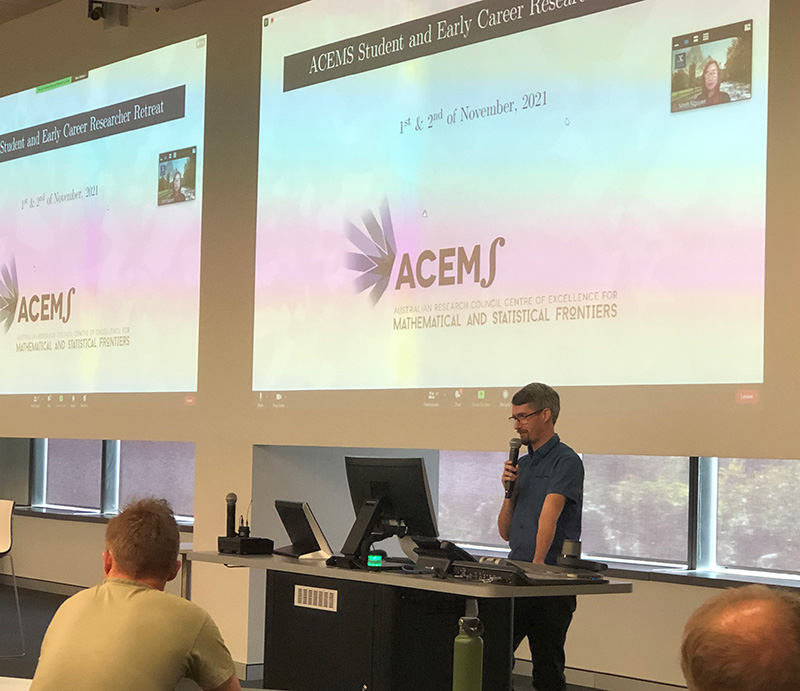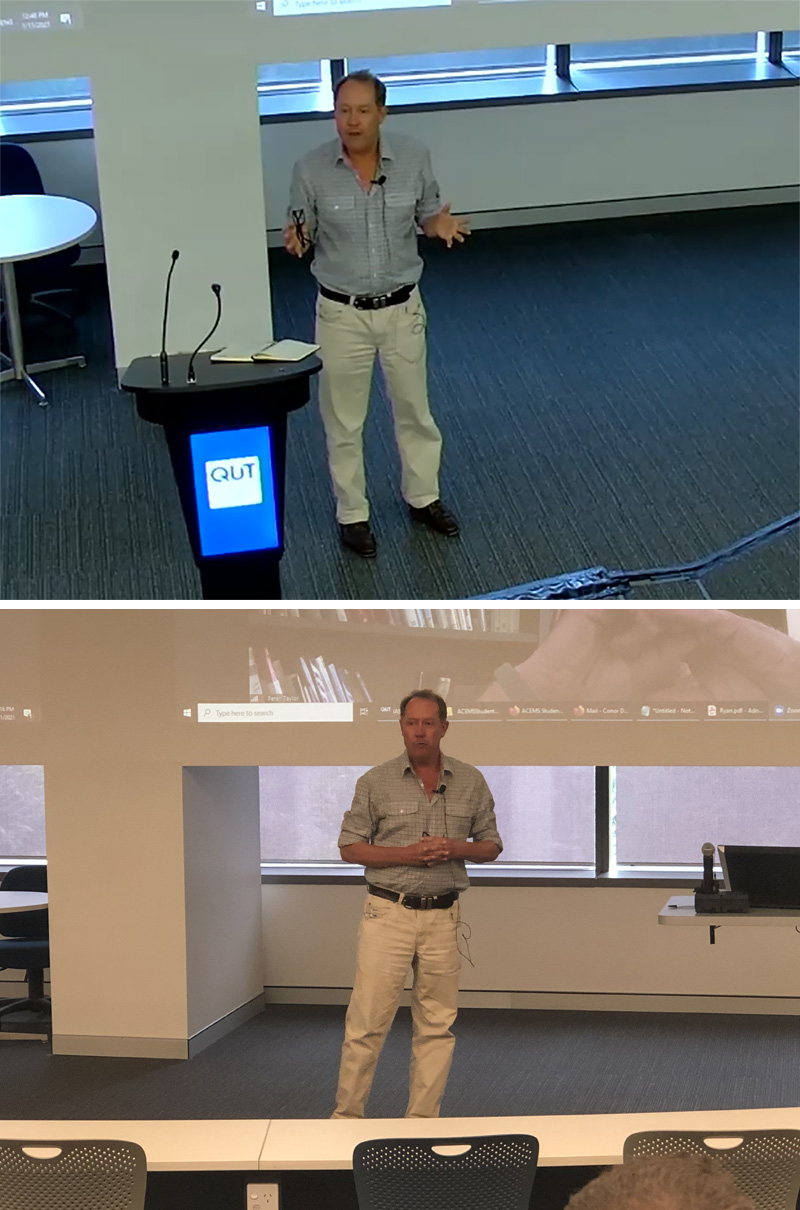
Building connections beyond the life of ACEMS – the 2021 Student and ECR Retreat
Looking back, years from now, it may be the defining legacy for ACEMS.
The next generation of leaders in the mathematical sciences may end up where they do because of the skills, collaborations, and networks that were first established while they were a student or early career researcher in ACEMS.
“The way ACEMS has been able to foster a community of PhD students, postdocs and early career researchers. That’s something I haven’t been aware of before where you’ve got members of these groups from different universities getting together, getting to know each other, and in some cases even writing papers together. Those connections will go with them throughout their career,” says Professor Rob Hyndman, an ACEMS Chief Investigator from Monash University.
To help build these connections, ACEMS has hosted an annual Student and Early Career Researcher (ECR) Retreat for the past seven years. 2021 was no different, except for the fact that the final retreat had a hybrid format because of COVID.
Immediately preceding the Centre’s Main Retreat , more than 120 students, ECRs and other guests attended the Student and ECR Retreat which was held on 1-2 November 2021. Queensland participants attended in person at the Centre’s QUT node, while everyone else engaged virtually due to travel restrictions.
Dr David Warne was one of the Centre’s ECRs who helped organise the retreat.
“I really enjoyed hearing from so many ECRs and students about their research. There really is some exceptional work going on,” says David, an ACEMS Research Fellow at QUT.
The retreat began with a powerful talk from Queensland’s Chief Scientist, Professor Hugh Possingham.
He challenged the group to step out of their comfort zone, and to embrace opportunities that may seem too hard, or may be of no interest to them.
“The things that you’re asked that you don’t want to do, the things you’re asked to do that are incredibly painful, are possibly the most important things you’ll do. The half dozen times in my life when my mind has been expanded the most is when I was doing what I didn’t want to do,” said Professor Possingham.
He told the ECRs and students that while their technical skills are important, it’s their communications skills that will separate them from others.
“You have to speak well, and you have to write well. If you don’t love writing, life will be difficult.”
QUT Centre for Data Science Professor of Practice, Rachel Thomas, echoed those themes the next day. Rachel was part of the Industry Panel Discussion titled, “Tales of two worlds - navigating between industry and academia”.
“Communication skills are worth practicing and improving,” said Professor Thomas, co-founder of fast.ai, a research institute dedicated to making deep learning more accessible via their free courses, software library and cutting-edge research.
“If you have really high-quality work that you’re proud of, you want to get that in front of an audience.”
The panel also included Dr Peter Steinle from the Bureau of Meteorology, Dr Vu Nguyen from Amazon Research Australia, and ACEMS Chief Investigator Matt Roughan from The University of Adelaide.
“I thought it was a highly informative panel on the interplay between academia and industry. My key take home is that it is possible to be a part of both worlds, and that both worlds are essential for progress in science and technology,” says David.
There was also a motivational academic panel discussion involving Professor Kate Smith-Miles, Director of OPTIMA and ACEMS Chief Investigator; Associate Professor Tim Garoni, ACEMS Chief Investigator and Deputy Director for Outreach; and ACEMS Associate Investigators Dr Kate Saunders and Dr Matias Quiroz. The students and ECRs heard from these ACEMS researchers who are further along in their career about the work they’re doing and their thoughts about the future directions for mathematics and statistics.
Of course, no Student and ECR Retreat would be complete without some networking. The group had to do that virtually, but it was still a lot of fun for those who took part.
“Throughout its life, ACEMS has been consistent in providing opportunities for our early-career researchers and graduate researchers to get together, to get to know each other and to talk about their work. My hope is that the group of young researchers who have passed through ACEMS early in their careers will be among the leaders of the Australian mathematical sciences community in, say, ten to twenty-five years’ time,” says ACEMS Director Peter Taylor.
The future of the mathematical sciences will soon be in the hands of these young researchers. We can’t wait to see where they will take it!

ACEMS Research Fellow David Warne welcoming participants to the final ACEMS Student and ECR Retreat.

Professor Hugh Possingham, Queensland’s Chief Scientist, presenting the opening session at the 2021 ACEMS Student and ECR Retreat.
Retreat Videos
Professor Hugh Possingham’s talk at the ECR/Student Retreat
Industry Panel Discussion featuring: QUT Centre for Data Science Professor of Practice, Rachel Thomas; Dr Peter Steinle from the Bureau of Meteorology; Dr Vu Nguyen from Amazon Research Australia; and ACEMS Chief Investigator Matt Roughan from The University of Adelaide
Academic panel discussion talks
Kate Smith-Miles
Tim Garoni
Kate Saunders
Matias Quiroz